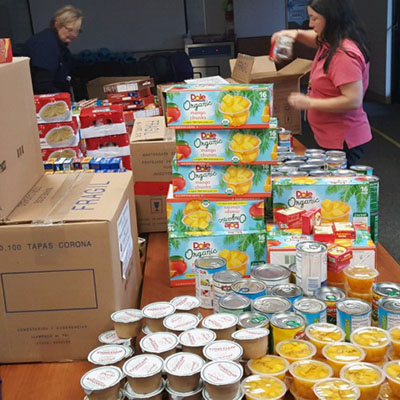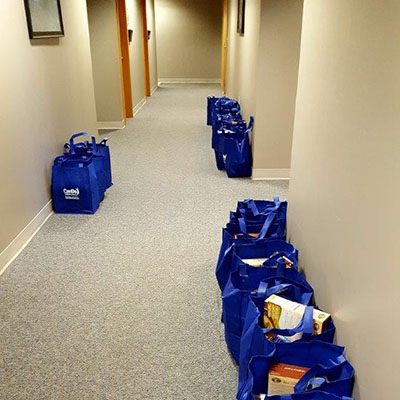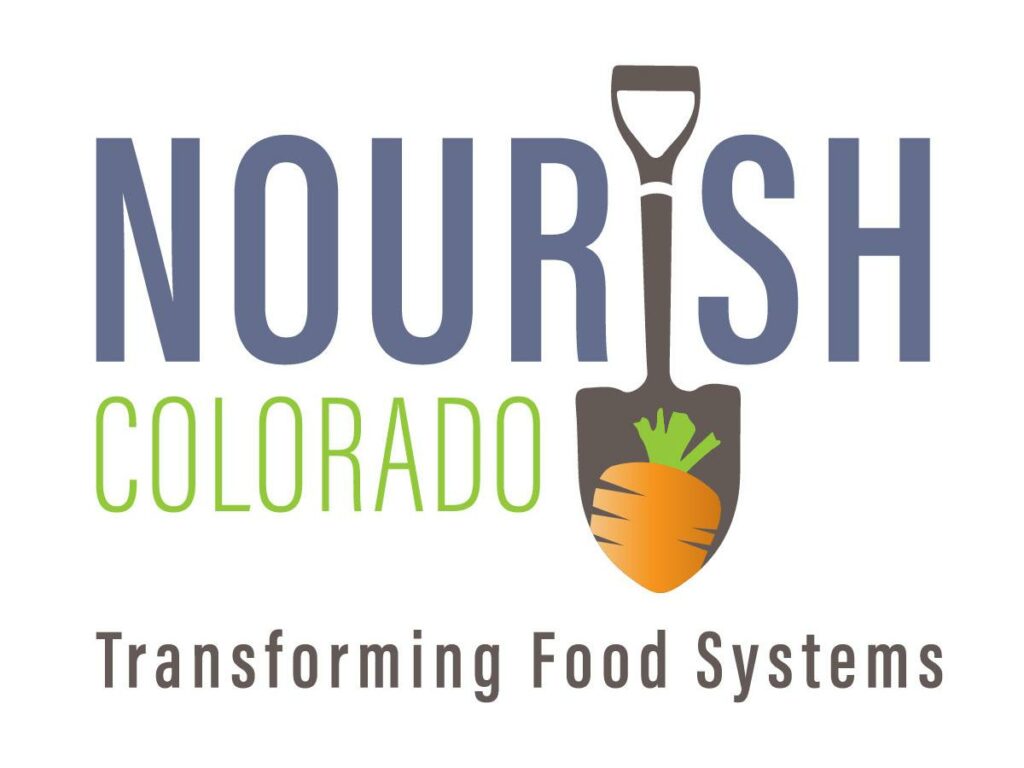A New Food Pantry Clinic & Emergency Food Assistance Program is Fighting Hunger in Fort Collins, CO
 Hunger in America is often described as a hidden epidemic. In such a beautiful and vibrant state as Colorado, it can be even easier to overlook if you or your loved ones are not personally affected. Yet nearly one in eight Coloradans struggle with hunger,[i] and nearly one in five Colorado kids may not always know when or where they will get their next meal.[ii]
Hunger in America is often described as a hidden epidemic. In such a beautiful and vibrant state as Colorado, it can be even easier to overlook if you or your loved ones are not personally affected. Yet nearly one in eight Coloradans struggle with hunger,[i] and nearly one in five Colorado kids may not always know when or where they will get their next meal.[ii]
Larimer County in northern Colorado is home to Colorado State University in Fort Collins, a city that is often listed as one of the “best places to live” in the U.S. Yet poverty and hunger are still all too common. According to the Food Bank for Larimer County:
- 14 percent of Larimer County residents live at or below the Federal Poverty guideline,
- 8 percent of single mothers live in poverty,
- 42,880 residents are food insecure, and
- 33 percent of school-aged children receive free or reduced meals in Larimer County.
Additionally, Hunger Free Colorado’s new Food Stamp Impact Reports showed that Larimer County ranks 9th out of Colorado’s “big 10 counties” for the number of residents eligible but not enrolled in SNAP (Supplemental Nutrition Assistance Program, or food stamps), with only 43 percent of the estimated low-income population enrolled.
While the Food Bank for Larimer County works hard to provide food to all residents facing hunger, a recent mapping project conducted by the organization last summer showed that the food bank’s two distribution centers in Fort Collins and Loveland weren’t enough to reach everyone in every community in need of assistance.
Several months ago, Deirdre Sullivan, program supervisor at UCHealth Community Health Improvement and Vida Sana, a community coalition addressing health disparities among Hispanic/Latino and low-income community members in Larimer County, was tasked with finding a way to use grant funds to address food insecurity in Larimer County.
“I spoke to staff at Family Medicine Center [UCHealth’s safety net clinic in central Fort Collins] and found that approximately 70 percent of their patients are low-income and Medicaid-eligible, which meant many were likely struggling with food insecurity,” Sullivan says. “But providers were reluctant to ask about needs they couldn’t immediately meet.
 To begin addressing this challenge, Sullivan partnered with David Marchant, MD, Clinic Medical Director, to create a team and develop a survey for Family Medicine Center providers to use to screen and assess patients’ need. The initial program was set up so that patients whose screening results showed an immediate need for hunger intervention could receive an emergency food bag (LEFT) right away, on site after their appointment.
To begin addressing this challenge, Sullivan partnered with David Marchant, MD, Clinic Medical Director, to create a team and develop a survey for Family Medicine Center providers to use to screen and assess patients’ need. The initial program was set up so that patients whose screening results showed an immediate need for hunger intervention could receive an emergency food bag (LEFT) right away, on site after their appointment.
“Since the program launched on December 19, we’ve distributed approximately 600 bags of food, provided by the Food Bank for Larimer County and purchased with funding from LiveWell Colorado, to patients in critical need of food assistance,” Sullivan says.
In addition to continuing to provide emergency food bags to patients, the partners have been working to install a permanent clinic food pantry at Family Medicine Center. “We’re hoping to open the pantry in early spring and plan to be open about 20 hours a week,” Sullivan says. “The space will allow us to distribute fresh produce, eggs, dairy, and other healthy shelf-stable items to even more people in the clinic and community who are experiencing food insecurity. And we will also still have pre-made food bags available in the clinic for patients in need of immediate assistance who cannot get to the pantry.”
Vida Sana is also working with promotoras, or community health workers, to assess further needs—such as assistance with signing up for SNAP and using SNAP benefits to purchase healthy food—in low income and/or Spanish-speaking neighborhoods where food insecurity is high. “Because an estimated 57 percent of Larimer County’s low-income population is eligible but not enrolled in SNAP, this is an important extension of our work that the promotora model can be very effective in addressing,” Sullivan says.
As the new food pantry clinic and associated programs roll out this year, and the partnerships begin to gather more data from the initiatives, Sullivan is optimistic about the potential for positive impact on the health and well-being of low-income communities in Larimer County. “The food pantry project has really helped build a bridge between the Family Medicine Center, UCHealth Community Health Improvement, the Food Bank for Larimer County, and the communities we serve,” she says.
For more information, please visit www.uchealth.org and www.candoonline.org/vida-sana, or contact Deirdre Sullivan at Deirdre.Sullivan@uchealth.org or 970.495.7517.
Editor’s note: This is a sponsored post as part of the Engage in the Change luncheon
[i] U.S. Department of Agriculture, Household Food Security in the United States in 2015, September 2016; Food Research and Action Center, How Hungry is America? National, State, and Local Index of Food Hardship, June 2016
[ii] Colorado Children’s Campaign, 2016 KIDS COUNT in Colorado!, March 2016

